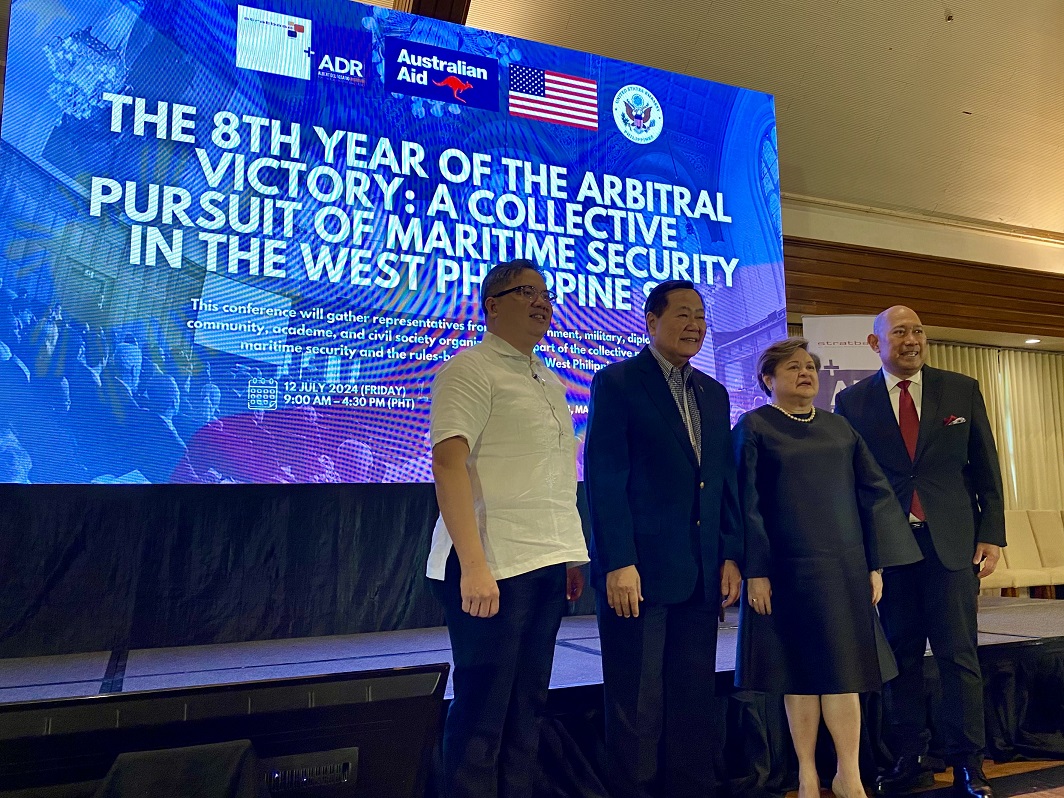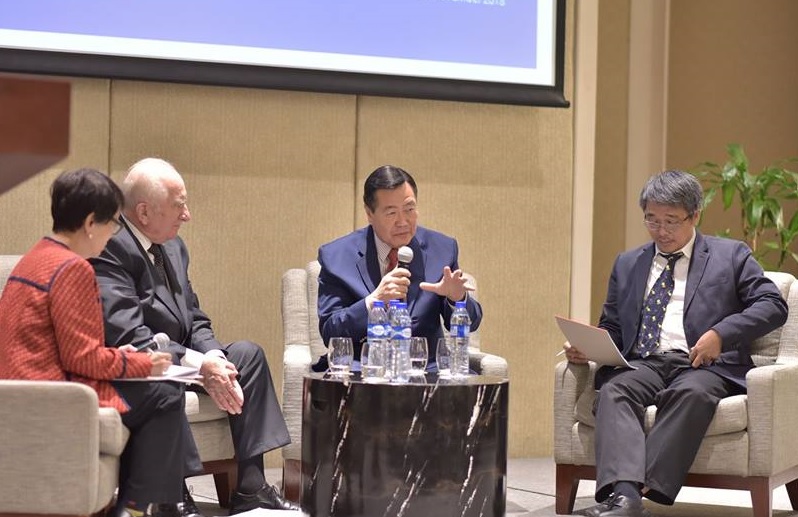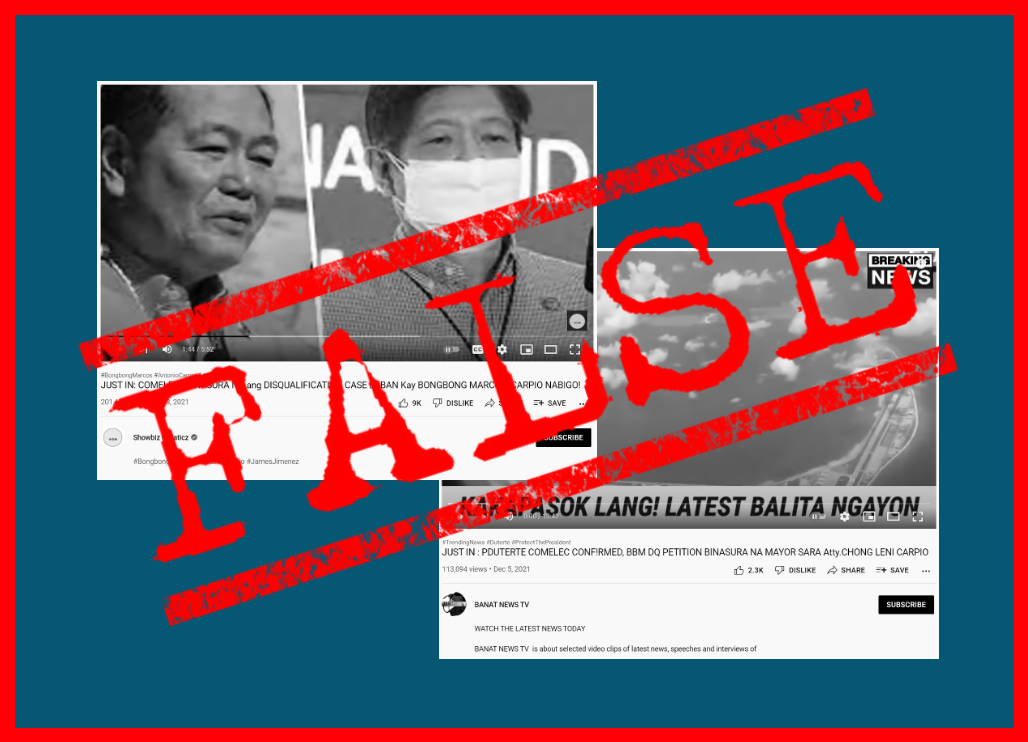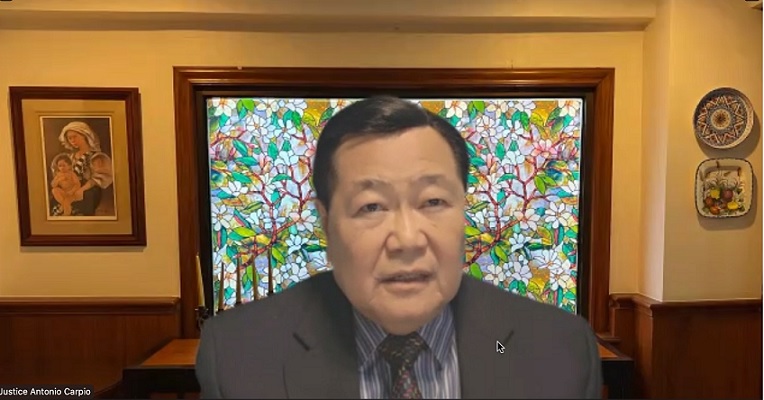Retired associate justice Antonio Carpio renewed his call for the Philippines to “pile up more arbitral awards” against China to negate its “baseless and expansive” claim of almost the entire South China Sea.
“The legal approaches in countering China’s aggression are the countermeasures most dreaded by China. Why? Because China has simply no defense against these legal measures,” Carpio said during a conference hosted by Stratbase ADR last July 12 commemorating the 8th anniversary of the 2016 arbitral ruling on the West Philippine Sea (WPS).
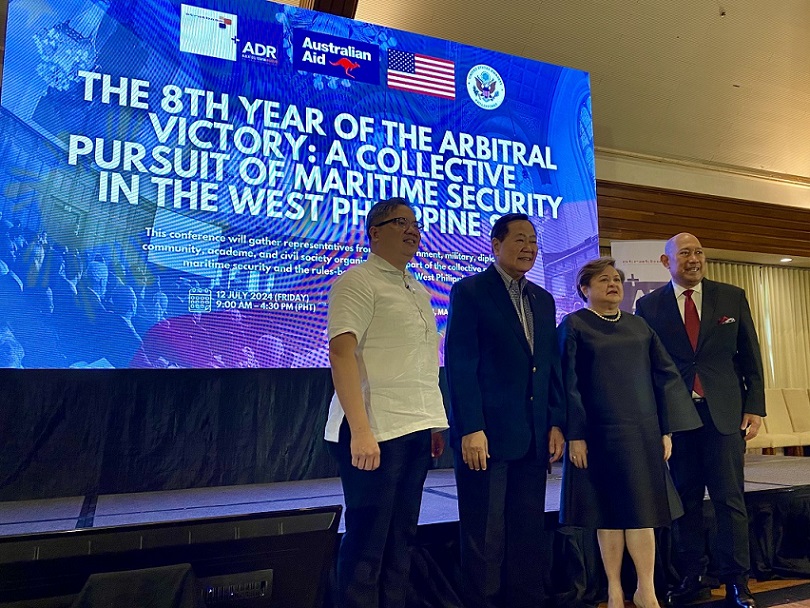
Carpio mentioned three possible arbitral cases: one that would bring China before the tribunal for claiming areas beyond its maritime zone, another that would draw up common fishing rules and a third case that could admonish China when they stop the Philippines from possibly constructing civilian-related structures in the WPS.
“These arbitration cases are peaceful settlement of disputes between states in accordance with the UN charter and in accordance with the UN Convention on the Law of the Sea (UNCLOS),” Carpio, who was an observer in the 2016 arbitral case, explained.
The former associate justice lauded the government’s filing for an extended continental shelf beyond the country’s 200 nautical mile (nm) exclusive economic zone (EEZ) last June.
He further urged the Marcos administration to file another arbitration case against China because its coastline is more than 350 nm from the extended continental shelf it is trying to claim in a dispute with the Philippines, Vietnam and Malaysia.
Under the UNCLOS, a state can only claim 350 nm of maritime zones from its baselines.
“China cannot raise its 10-dash line because the arbitral award of July 12, 2016 had already declared that this 10-dash line has no basis in fact and in law and is contrary to UNCLOS. If China rises the 10-dash line again, it will certainly meet the same fate as the first arbitration,” Carpio explained.
Asked in the same conference if the government can afford to file more arbitration cases, Foreign Affairs Undersecretary Ma. Theresa Lazaro explained that this should be discussed further.
“Let the private sector, the civil society say what they want to say… Iba kasi how the executive thinks but we welcome those statements,” she said.
Setting up common fishing rules
Leonardo Cuaresma, president of the New Masinloc Fisherman’s Association, lamented the increasing ‘tension’ in the WPS, especially Scarborough Shoal, has aggravated the situation for fishermen.
“Bakit ganito daw yung mga pangyayari at kung kalian kumikilos ang atin pong pamahalaan, mas lalong tumitindi ang tensyon na nararanasan po ng ating mga mangingisda,” he asked during the forum.
(Why is this happening? Now that the government is doing something [to defend the WPS], the tension being experienced by fisherfolk is getting worse.)
Carpio explained that the answer lies in how the country would enforce the traditional fishing rights of Filipino fisherfolk.
As ruled by the tribunal in 2016, the a traditional fishing ground for the Philippines, China and Vietnam.
“The three countries should have an agreement as to the rules for fishing because it’s a common fishing ground. There must be common rules,” Carpio explained.
He argued that the Philippines could file another arbitration case inviting China and Vietnam to draw up rules for common fishing in the lagoon around Scarborough Shoal.
Rules may include the number of fish catch each country can take per year, the months for fishing season and the kind of fishing gear allowed.
Lazaro said there are already “discussions” on establishing such fishing rules in the proposed code of conduct.
In a separate interview, Cuaresma disagreed with the suggestion as he worries this would put at a disadvantage local fishermen who are already experiencing a low fish catch.
“Hindi ako pumapabor kung ito ay gagawin nilang communal fishing ground sa ngayon sapagkat nakita na namin na ‘yan ay sinira na ng mga dayuhan… Kung ito ay gagawin pang communal fishing ground, baka lalong wala na po kaming pangisdaan dahil sa dami ng mangingisda sa lugar,” he explained.
(I don’t approve if they’re going to make this a communal fishing ground because we already witnessed how it was destroyed by foreigners. If we’re going to make it a communal fishing ground, we may lose our fishing area because of the many fishermen fishing there.)
Cuaresma urged the government to provide more support and alternative livelihood sources for fisherfolk affected by the dispute on the WPS.
“Kung mabigyan kami ng pagkakataon ng ating pamahalan na mabigyan din kami ng malalaking sasakyang pandagat, makakarating kami sa ibang lugar para makapangisda rin kung saan merong maraming volume ng isda na hindi lamang kami nakatutok sa mga bahura,” he said.
(If we’re given a chance by the government to be provided bigger boats, we will be able to reach other areas that have more fish and we won’t have to concentrate on the shoal alone.)
